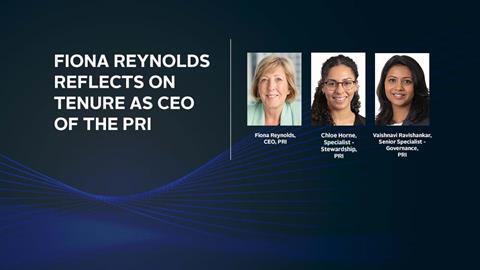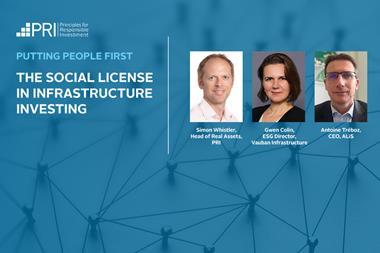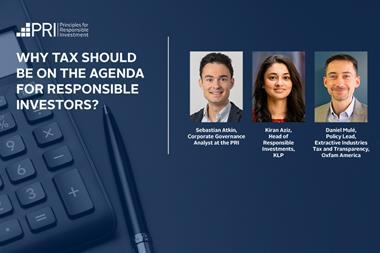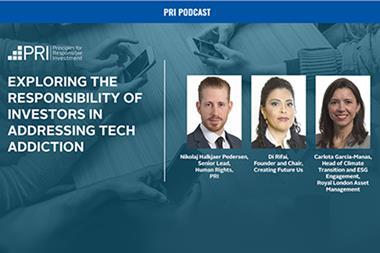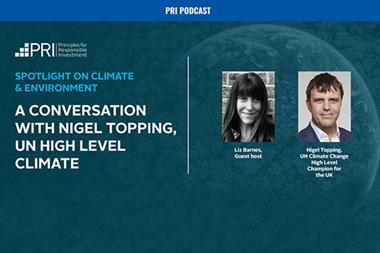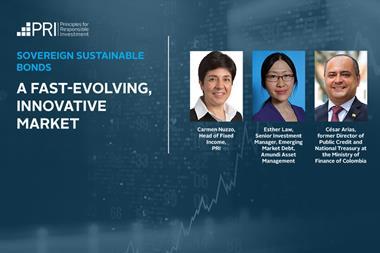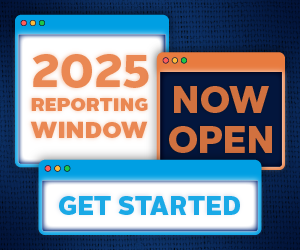Find the podcast transcript here
Fiona Reynolds reflects on tenure as CEO of the PRI
With Fiona Reynolds, PRI CEO, Chloe Horne, Specialist – Stewardship, PRI and Vaishnavi Ravishankar, Senior Specialist - Governance, PRI
Note: The Principles for Responsible Investment podcast is designed to be heard. If you are unable to do this, this transcript offers an insight into the episode.
Transcripts are generated using a combination of speech recognition software and human transcribers, and may contain the occasional error. Please check the corresponding audio before quoting in print.
Subscribe to the channel via Apple podcasts, Spotify, or wherever you listen to your podcasts.
Chloe Horne
Hello everyone and welcome to this PRI podcast. My name is Chloe Horne, and I’m delighted to be your host for this very special episode together with my colleague Vaishnavi Ravishankar.
Vaishnavi Ravishankar
Hello everyone.
Chloe Horne
And we’re joined today by PRI’s CEO Fiona Reynolds, who today, after more than nine years of leading the PRI is stepping down to return home to Australia. Over the next 20 minutes or so we’ll have a frank conversation about her tenure as CEO and the evolution of responsible investment during this time. We’ll also explore Fiona’s post PRI plans and her hopes for the future of the industry.
Vaishnavi Ravishankar
So Fiona, I’ll jump right in. Could you take us back to when you first joined the PRI? I think a lot of us are curious what motivated you to move to London and take up the CEO role at the PRI.
Fiona Reynolds
Well, first of all Vaish and Chloe, it’s really nice to be having this discussion with you. One of the things that I love seeing in my career is young women doing great things in the world. So, I’m really pleased to be able to be here with you. Coming back to my motivation, my overall motivation has in working in the finance sector has always been around. How do you make the financial system work for the many people and not for the few which it often does. So back in the 1990s, I started working in the superannuation or pensions industry in Australia. Up until this point of time, most working Australians really just retired on a fairly basic age pension that the state provided. They didn’t have other savings. So, superannuation was introduced and has meant it was designed to make sure that all Australians could retire in a dignified way. And that’s what we should aim to have. We should see that everybody works hard and we should all be able to retire with dignity.
And the superannuation system was really created a lot out of the union movement and by bringing employers along as well. So, it was a trade-off for wages basically, deferred wages. We’re putting money away for retirement and it’s now grown. Australia’s superannuation pool of savings is now bigger than the country’s GDP. And it really started to create an alternative financial system, a financial system that was really run by employers and employees as directors of the pension funds and its sole purpose was to look after the members and their retirement much run like a mutual fund. So, all the profits were returned to members. It wasn’t something that was run for the profits and fees of managers and insurers and all of those kinds of things.
So, working through the pension sector or the superannuation sector, of course, as more people had to put money into the system and years went by that system, that pool of money became larger and larger. And I really began to understand in the early days, the power that we were going to have the power that we actually did have to bring about change. I then also, you know, started to understand the role of leverage that you could, that pension funds could have in stewardship in the investment they made and i starting to think more about not just the returns that they were making for their members, that retirement, of course, that significantly important, but also thinking more broadly about the world into which they were going to retire. As I often say, no use retiring with a nice stack of money if you can’t breathe the air outside. And you know, the world’s in complete disarray. So I’ve always been really interested in issues to do with inequality, particularly for working people and working class people. And I’ve always been interested in climate change as well. So those issues around people and planet, and then how do you really balance people, profit and planet? Cause of course it’s all possible. So I worked in the superannuation industry for a long time and I used to run an association for asset owners. We didn’t our focus wasn’t on just on ESG issues. It was a broader policy organisation. And I knew that I wanted to continue to work with investors because I really believe that if you want to bring about change in the world, you can do it in many ways, but a significant way that you can do it is by following the money because money controls a lot of things.
And as I said was interested in ESG issues. I’ve been involved in establishing the Australian council of superannuation investors, which was started out of my organisation. I was on the Board. And I thought that it was about time that I went and did something else. And I thought it will be nice to go and work overseas. My kids had got a bit older and then the PRI job came up and you know, the rest, as they say is history. And so I got on the plane by myself for prom Australia. I didn’t, I didn’t know anyone in the UK really, and turned up at the, at the PRI in this, there began a very interesting journey.
Vaishnavi Ravishankar
That’s really fascinating. What would you say you set out to achieve at the time and what are your reflections and those ambitions now?
Fiona Reynolds
So I could never really understand why there was such resistance to considering ESG issues. To me, it’s always just really been a no brainer that, you of course have to invest in a way that considers people and the planet and that these were all investment issues. So, I really wanted to see responsible investment mainstreamed. And then you have to think about why is there such resistance? Well, there’s, there was such resistance because people want to hang on to their power and their influence and their money. You know, this is the way we do it. This was the, if you think back to the eighties and the nineties, there was very much this greedy good sort of mantra. And it was all about making as much money as you could. Now we saw what happened with that because we had the 2008 financial crisis and the crash. And of course, you know, it shows that you just can’t keep doing things. And also that I think, you know, people had started to ask about, at what cost are we making money at? What, you know, that there are planetary boundaries that we can’t keep exploiting people, but there was a reluctance to change. And so really one of the things is that as asset owners around the world got bigger and stronger because their assets under management were getting larger and larger because all of these people pouring money in every month into their pension funds, that they became bigger and they became more influential and their expectations were different because they’re not just managing money for a day or day trading. They’re managing money for a very long time horizon so they can think differently. So that meant they started asking more questions of their managers and their managers, so those expectations changed, but also they became much more sophisticated and they started to ask questions of business and demanding more.
And, you know, that’s how we’ve really seen. It’s really through the large asset owners that we’ve really seen, the PRI established, you know, we were established with 86 asset owners in the early days, but also, the whole space develop. So I see it as, as there was quite also a power shift to what are very large mutual kind of funds from, from other sectors of the finance industry. And again, coming back to, it’s really a bit of an alternative financial system, but it hasn’t been easy. It certainly hasn’t been easy along the way. When I first started working at the pier, I like we would go, we would turn up anywhere. We would talk to anybody who would, who would listen to us. And often we were, you know, the last event in the side event, like on the Friday afternoon at four o’clock or, or, you know, or something like that, but we still did it. We were determined to change people’s minds.
Vaishnavi Ravishankar
That’s amazing! You’ve already touched on this a little bit and building on this a bit further - what are some of the big changes you’ve observed in the way that PRI and RI more broadly have evolved over the last decade or so?
Fiona Reynolds
Well, obviously we’ve developed in size and scale. So when I started the PRI, we had about 1200 signatories. We had about 30, low thirties of staff. Now we’ve got more than 4,300 signatories, you know, we’ll soon be five before we know what the will be 5,000 signatories and where 210 staff and still growing. So I think one of the things that has changed, you don’t have to convince people as much anymore about ESG issues. Now people are, you know, act like they invented it and got invented yesterday. But if I use it as an example, I just recently came back from COP in Glasgow. Now, when I first went to a COP, you know, again, investment investors ESG it was sort of down the road at the side of it, around the corner, and we were there, but we were just on the fringes. This year when we were there finance investment, responsible investors, the PRI, we’re very much front and center on the main stage with world leaders.
And it just really goes to show how much has changed. I also think when in the early days of responsible investment as well, that it used to just be that investors sort of were looking at responsible investment in terms of what was happening in the listed equity space. So, you know, I can engage with companies, I can vote my shares, that was about the extent of it. But I do think that, thanks to the pair I, and you know, our signatories who’ve got, who have got involved, we’ve then really developed the space across asset classes. So how do you do it in every asset class? What are best practices? And, you know, the other thing I think that’s changed is it’d be pretty hard today as an investment manager to get a mandate from a large asset owner, if you don’t have any ESG capabilities.
So now instead of it being, you know, something that they didn’t really have, it’s really a business imperative. And again, when I started this space, a lot of the.. you would, you would talk, you’d go and you’d go to an organisation and you’d want to talk to the person who was involved in responsible investment. And it was often the marketing person or the salesperson. They didn’t have.. And not to say that those people shouldn’t understand responsible investment, but you could tell how seriously an organisation took what they did based on where their staffs sat. So, it’s a marketing exercise or a sales exercise, not necessarily, you know, how are we bringing about change in our organisation, right.
Chloe Horne
And as someone who hasn’t been at the PRI for relatively long, it’s really impressive to hear about this evolution. And I mean, just crazy to hear about the PRI and RI more generally being on the fringes. I just couldn’t imagine that. But I’m interested to know Fiona, what, what stands out as something that you’re particularly proud of since joining the PRI?
Fiona Reynolds
Well, the, yeah. Okay. So there’s many things I’m really proud of many of the staff both are here, but those that have moved on. I’m keeping contact with many of them and I watched their careers develop and things that they’re doing now. And I’m really proud of all of that, but I suppose a few things that I’m also proud of. So we launched the Montreal Carbon Pledge in 2014. So, this was ahead of the Paris meeting on climate change that were going to happen in 2015. And we had a lot of opposition. There were hardly any investors who were really thinking about the issue of climate. There were some, but not a lot, but it was the first time that many of our signatories then really had to think about their carbon footprint of their portfolio.
What was it, what was driving it? What were the companies that were driving their carbon footprint. And once they had this information, they couldn’t just really stick it in the bottom drawer, they actually had to act. And I do think it was a bit of a catalyst to getting investors, mainstream investors thinking about climate. And then we’ve seen so many other things come from that. So Climate Action 100+ for example, stemmed out of the Montreal Carbon Pledge. CalPERS for example, realised that there were a hundred companies that were driving their carbon footprint. So how did we really come together as an industry and engage with the biggest emitters in the world? Then, we have things like the Asset Owner Alliance. And, you know, when, again, coming back to being at COP in Glasgow - just before COP, we had a number of those asset owners, the ones that were in at first setting out their 2025 targets about reducing, you know, across their portfolio.
And we have the secretary general of the UN who stands up and talks about the Asset Owner Alliance and talks about it being the ‘gold standard’ and how other investors should be following the lead of the Asset Owner Alliance. So, you know, there, there’s some of the things that I’m really proud of and it’s great. It’s great to see. It’s great to watch the, you know, the continued evolution of what people are doing in the space and being part of that, I really liked getting initiatives off the ground. It’s one of the things that I most enjoy, and I strongly believe in the power of the collective that no one investor organisation or otherwise individual can do these things by themselves. The problems too great, whether it’s social issues or whether it’s environmental issues. We actually have to bring people together. And I think that’s one of the great things about the PRI too - what we do is bring people, bring investors together, to act.
Chloe Horne
So, I mean, that’s really inspiring to hear, and it’s great to see all of the new collaborative initiatives it’s coming up, either being led by the PRI or by our signatories as well. And I mean, Fiona, as a seasoned RI professional now, what would be your advice to new professionals joining the RI industry? and wondering what it’s all about.
Fiona Reynolds
Yeah. So I would say make sure that the organisation you were working for, the all you’re thinking about going to work for is really genuine in their ESG commitments, that the commitment comes from the top of the organisation, because if it doesn’t come from the top of the organisation, then you going into it, you might really struggle to get your agenda heard and to get things done. I think really make sure that you’re dealing with issues about greenwashing and you’re guarding against them. And that there’s strong accountability and really understand the role of the investor because that’s where you would be working in the investment space. I think sometimes people have expectations about what investors can and can’t do, understand the leavers that investors have and work with those and work within the boundaries that they have and that’s regulatory and otherwise. And then I think, you know, if you’re at the right place with the right leadership, then you should be able to do great things in the world. And this is a great, this is a fantastic space to work in. It’s got so many great young dynamic people in it. And you know, I feel really the future of the space is going to be fantastic.
Chloe Horne
I couldn’t agree more with that.
Fiona Reynolds
And so what about you, Chloe? You know, what did you learn when you first joined the industry and what would your advice be to others who want to join the space?
Chloe Horne
I think when I joined the PRI, which was in our Planning and Operations team, I was quite, I wouldn’t say naive, but I think just unaware of how big the world of responsible investment force was. And it was just mind blowing to discover the different teams and roles involved in RI from stewardship, which is where I am now to specialising in specific ESG issues like Vaish. So things like public policy and data, and I think it’s really incredibly helpful to have an open mind and understand the different areas of RI and the objectives and the day-to-day roles. And that really helps to think about where your strengths may lie, what you find the most fulfilling and also where you can add the most value to. And I think one of the things I’d say links to what you said you’re in there is to really believe in the mission of the organisation you join.
I think RI is such a great space to work in, but it can be difficult and long, and the issues we’re addressing can be quite heavy as well. So, I think it makes a huge difference if you’re passionate about the end goal. And I think personally working at the PRI, it’s just nice. It’s a nice feeling to come into work and know everyone is driven by what the PRI is trying to achieve. And generally, it wants the PRI to thrive both in the work that we do, but also as employers.
And I mean, Fiona, since we’re on the topic of looking inwards, there’s been some criticism that some of the organisations that we work with don’t look inwards to examine their own practices on issues like climate and tax and DEI. I mean, what are your thoughts on this criticism and the role of investors in this?
Fiona Reynolds
Well, I think that it’s very difficult for investors to go and be engaging with companies and others and telling them what to do basically, or advising them what to do if they’re not doing the things themselves. Now, when I say that, we also have to understand that organisations have different structures, they’re different sizes. You know, the PRI for example, is not the same as a large multinational organisation, but that doesn’t mean that we shouldn’t have good governance and accountability and transparency. And same, even if you’re a smaller asset owner, you’re again, you’re not going to be as big as a large bank, for example. And the actions that you would need to take might be slightly different, but the fundamentals should be there. And I think good governance, accountability, and transparency sit underneath those. It is a space that’s growing. As I always say, one of the things about responsible investment is that nothing ever comes off the list, just more issues get added to the list.
So sometimes people haven’t, you know, come to some issues yet and they need to be educated about them. And I hope that we play that role and then we need to see them doing more about it. I think this is where our reporting framework plays a really important accountability tool, but also sets out expectations. And it has to continue to develop as well. And so, at the PRI we, as an organisation who also goes out and we advise investors what to do. We talk to business, we talk to governments, we talk to regulators, we need to make sure that we have our house in order as well. So, you know, we’ve been going through a process or that we’re calling, walking the talk and looking at all of our policies, all about procedures. What do we do? What needs to be updated, what needs to be improved? And I do think it’s one of those things that it is about ongoing improvements and enhancements.
Vaishnavi Ravishankar
We’ve spoken a little bit about the growth of the RI industry. But I wanted to talk a little bit about the challenges that you’re seeing. What do you think are some of the key challenges that still need to be tackled? I know you’re very walkable about some of the social issues. Would that be at the top?
Fiona Reynolds
Yes, absolutely like I said, nothing ever comes off the list when it comes to responsible investment and I’ve always been passionate about social issues since I was a kid. And, you know, it was why I started working in finance and I still don’t think that social issues have climbed up the agenda of a lot of investors. Now, some take them extremely seriously and are fantastic at it, but others just say, we don’t have the data, we don’t have the information now. Okay. But that doesn’t mean we can’t get started. We didn’t have the data and the information on climate. For example, when we, when we started doing work there. So, I still think they’re gaining prominence provenance, but they you know, they still lack a lot of focus. So if, for example, I chaired a commission on modern slavery and human trafficking, there’s 40 million people in some form of modern slavery and human trafficking, 1 in 185 people, 71% of them are women and girls.
This is more people today who are in some form of slavery than at any time in the history of the world, including at a time when shockingly slavery was legal. So how, you know, how are we in this position in the world? How has this happened? And I do think the investment and the business community, you’ve got a huge role to play. A lot of this happens down supply chains and that is business with their supply chains and investors need to be doing more on those issues. And I think, you know, if we’re going to tackle in issues about inequality, we have to take a bigger holistic view as well. So as you know, Vaish, my passionate areas is tax and tax evasion, evasion and tax fairness, because I don’t believe that if we, we can solve inequality, if we don’t solve the fact of tax that people actually pay tax, that businesses pay tax so that we have enough money in government coffers to pay properly for social services, for improved education, for better welfare systems, but better hospitals for people.
And, you know, it’s sort of a ridiculous issue that companies, you can wake up one day and see the newspaper headlines and realise that you as a working person is paying all this tax and you do your bit, but Joe blog, zillionaire hasn’t had to pay any and company X, Y, Z, they’ve managed not to pay any tax either. So I really welcome what’s happened recently within the OECD with bringing in, you know, a minimum tech minimum tax rate, I think still more needs to be done, but, that that’s heartening. I also think we really need to do more to tackle corruption because that is the other way that people suffer. Money doesn’t get to get to where it’s supposed to go because of corrupt practices. So I think that needs focus. I also strongly believe that we need to do more work around lobbyists.
You know, I think that we’ve, you know, it’s taken, if you think about say issues like climate change, it’s taken a long time to get people to act. And that’s mainly because some of the lobbyists were winning the days, particularly from fossil fuel companies, they had too much power and you know, that’s starting to change, but it’s still there. Look at some of the things that happened with the final outcomes from the Glasgow agreement whereby, people managed to have things watered down at the end of the day, particularly around fossil fuels. I actually think that companies shouldn’t be allowed to go to COP if they’re lobbyists, you know, if they don’t, if they don’t do positive things, then don’t be there. So I, and I still think there’s more to do in engaging policy makers around the world as well.
A lot of them really more and more policymakers and regulators are getting up to speed about sustainability issues. And I think PRI@s played a big role in that, but not all of them. And then the other thing, well, there’s so many, but I’ll finish on up saying that. I don’t think that there are enough investors who actually have made net zero commitment yet. If we think about the Asset Owner Alliance, it’s like 52 asset owners or PRI’s got more than 600 asset owners. So getting tthat moving, and hopefully things like the Asset Owner Alliance inspire others, but also that we make sure that those who make the commitment, haven’t just gone out with their press release to say, I’ve made a net zero commitment or pledge that they’re actually meeting their targets and reporting against them. So all of those things, you know, and then accountability, avoiding greenwashing.
And I think we really have to look at what our role at the PRI is and continue to ramp up our own accountability with it, with our signatory base, so it really does mean something to be a PRI signatory. You don’t just sign a piece of paper and I you know, sign onto the six principles without actually doing it.
So Vaish I’d love to, uh, turn that question back to you as PRI staff are actively working really to take forward responsible investment, be the future of responsible investment. So, looking from your respective area of the organisation, what do you see as some of the priorities for the industry and where do you think the biggest challenges lie?
Vaishnavi Ravishankar
I think you’ve nicely covered a number of issues there. But coming from a governance background, I think the issue of corporate purpose is the next big thing that we need to think about as an investment community. What does it mean? How should companies establish and implement their purpose and what are the regulatory changes that’ll enable companies to rethink their role in what has been primarily a capitalist society? These are all important questions, I think we need to tackle and they’ll form the basis of how value is created for employees, shareholders, customers and stakeholders in my view.
Fiona Reynolds
I think that everything starts with good governance to me. If you’re not a well-governed organisation who thinks about the all issues in a holistic way, your role in society, the role you play with your employees, the role in the community, that et cetera, that, that you are headquartered in and you operate in around the world. If you don’t have that, then they’re never going to be organisations who actually think about ESG issues anyway. So, we have to get that right in the beginning. And it’s good to see that there’s far more discussion about corporate purpose that is happening.
Vaishnavi Ravishankar
Yeah. So, what’s next for you for you Fiona? What do your post PRI plans look like? And how do you plan to continue to drive responsible investment forward in Australia?
Fiona Reynolds
So I’m going to run an organisation called Connexus, it’s Australia’s largest independent financial media. I do think the media plays a big role. This is industry to industry media, not industry to consumers. I think the media plays a big role about holding the industry to account. So, coming back to that accountability issue. And I’m the also going on a number of Boards, I’m going on an impact investing fund, I’m going on a fund that is about renewable energy and climate solutions. So, I’ll still very much be involved in, you know, in this space which will be great
Vaishnavi Ravishankar
Going to have your agenda full again. Do you have a parting message for PRI signatories?
Fiona Reynolds
Well, first of all, I’d like to thank them for all of their support over all the years that I’ve been here. You know, some signatories I’ve got to know really well, others, obviously I haven’t. So, you know, thank you for all of that support and faith that they have in PRI and particularly those that get involved. So, we are very fortunate as an organisation to have a very active signatory base, you know. At any time we have over a year six, 700 signatories who were involved in working groups, advisory committees, all of those kinds of things, which is fantastic. I’d also say as a parting message that you have leverage and you need to use it and you need to use it to your fullest power.
Vaishnavi Ravishankar
Thank you so much Fiona for sharing a bit of your journey with us. It’s great that you’ll be staying on at PRI in an advisory capacity for the next few months to ensure a smooth transition do David Atkins’ leadership. On behalf of the entire PRI, I want to take this opportunity to thank you for your leadership and dedication over the past nine years. We wish you all the very best in your new adventures and really look forward to seeing you continue to drive responsible investment from the other side of the world.
Fiona Reynolds
Well, as you know, Australia does need to move quite a bit. So I hope that I can make a difference as well. I also wanted to add that I have worked with David Atkins for a long, long time. I’ve known him for a long time, and he’s also Australian, of course. And I think that he’s going to be or don’t just think I know he’s going to be fantastic in the role. He’s just what the PRI I needs. And he’s going to do great things here.
Vaishnavi Ravishankar
Look forward to working with him. Thank you, Fiona. Well, thank you to all those listening. Remember if you liked this episode, please do rate and subscribe. And if you’d like more information about responsible investment as always, you can go to unpri.org.
Downloads
Transcript: Fiona Reynolds reflects on tenure as CEO of the PRI
PDF, Size 0.25 mb


